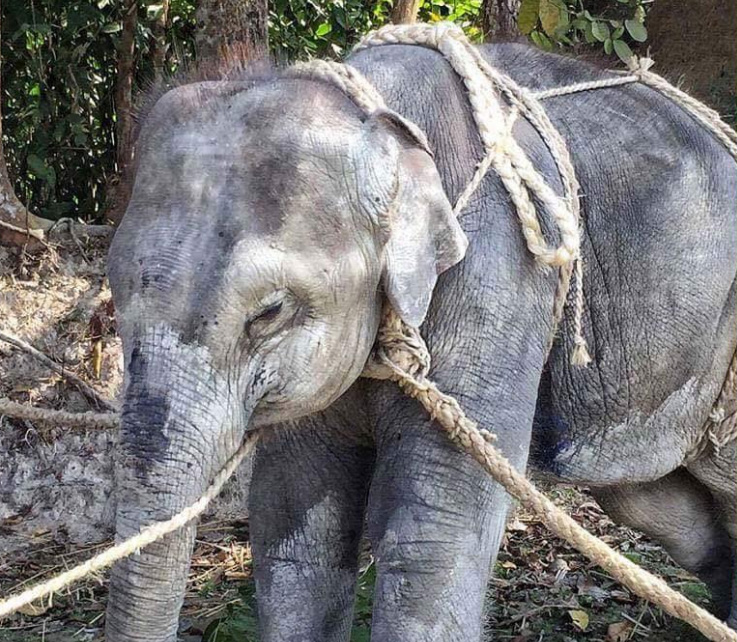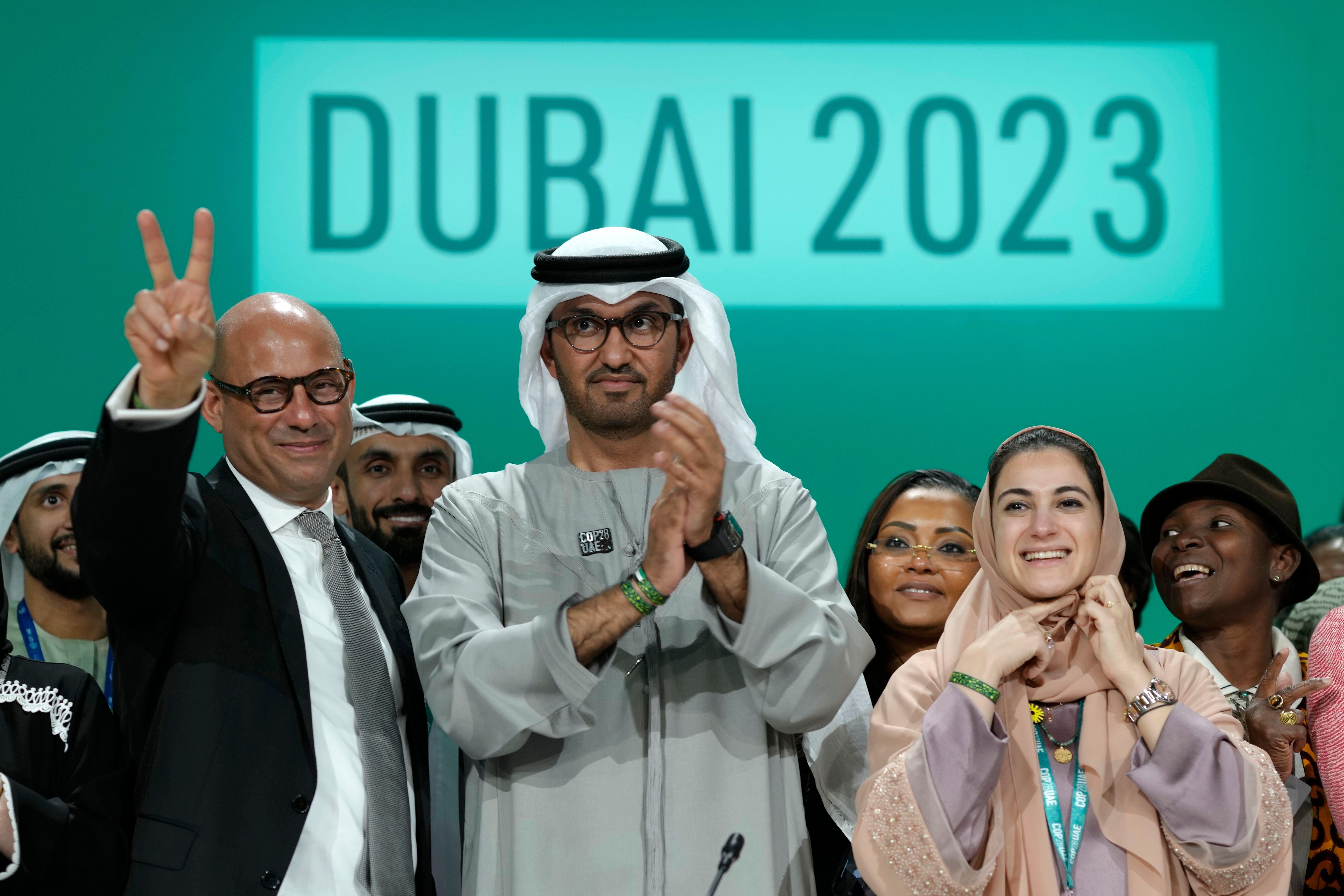On Wednesday 13 December we woke up to the news that an “historic” agreement had been reached at COP28 with the issue of fossil fuels firmly at the centre. Is this agreement a signal of the end of fossil fuels or just more empty rhetoric? Hannah Eves, A Rocha UK’s Policy and Campaigns Officer, explains the outcome.
Let’s go back to the beginning for a moment, to just two days after the UN’s annual climate conference, COP28, had kicked off in Dubai. Controversial before it even began due to the choice of the CEO of the state oil company as COP28 President, the conference was seen by many as one of the last chances to get global agreement on how to keep temperatures as close as possible to 1.5 degrees of warming. It was into this context that Pope Francis urged leaders on 2 December to ensure that these climate talks would be a “turning point” in the fight against the climate crisis.
He reminded them that the responsibility for tackling the climate crisis sits with world leaders, that “the purpose of power is to serve” and that it is “useless to cling to an authority which will one day be remembered for its inability to take action when it is urgent and necessary to do so”. The question was: will this COP be remembered as one in which world leaders heeded those words and ended the era of fossil fuels?
After a tense final two days, COP28 concluded and a “global stocktake” decision was reached on the morning of Wednesday 13 December, known as the “UAE Consensus”. This stocktake acts as a climate report card, with the goal of measuring countries” progress on actions to address climate change, against what was set out in the Paris Agreement. Fossil fuels were at the heart of discussions because the science has been clear for a long time now that we cannot keep burning coal, oil and gas if we want to avoid the worst impacts of climate breakdown.
What we got was a mixed bag. On the one hand, this is the first time that we have seen the key cause and driver of climate change – burning fossil fuels – acknowledged in the text. This offers a useful tool to push for more action from UK political leaders. However, the language in the document has been widely criticised as weak for falling short of what we needed according to the science, which is to insist on a rapid end to fossil production and consumption. The text simply calls on countries to transition away from fossil fuels.
The UAE Consensus also contains a “litany of loopholes” which creates opportunities for governments to avoid the necessary action of cutting fossil fuels in favour of concentrating solely on efforts to capture and store carbon – a technology untried at scale – and invest in renewable energy. It cannot be one or the other, we must phase out fossil fuels rapidly alongside investing in climate solutions. Whatever the groundbreaking rhetoric, it is clear that in reality, we are still not moving as fast on climate as climate science urges.
We saw on the second day of COP28 the operationalisation of a Loss and Damage Fund, first agreed at COP27. This progress in Dubai is encouraging indeed, however, the Loss and Damage (impacts of climate change that cannot be adapted to or mitigated) in developing countries is already estimated by some studies to be greater than $400bn annually – and expected to rise. The Loss and Damage Collaboration have criticised the progress at COP28, saying that it focused more on what developed countries need in order to provide finance for the fund rather than the scope and the scale of the needs of communities on the frontlines of the climate crisis. As such, we are still missing critical climate finance for countries facing the worst impacts of climate breakdown. John Silk, the negotiator from the Marshall Islands, commenting on the final agreement likened it to a “canoe with a weak and leaky hull, full of holes” and said “we have to put it into the water because we have no other option”.
Finally, given that we know that restoring nature, especially our carbon sinks, like forests and peatlands, is integral to climate action, it was very positive to see the inclusion of a 2030 Deforestation goal in the UAE Consensus. The text “emphasises the importance of conserving, protecting and restoring nature and ecosystems towards achieving the Paris Agreement temperature goal”. It has been estimated that approximately a third of the emissions cuts we need could come from nature based solutions, and so we are pleased to see nature acknowledged in the text. However, the failure to phase out the burning of fossil fuels and the subsequent rising global temperature would likely undermine this, given that global heating erodes forest resilience to drought, fire and disease. There is still so much more to be done.
So, how do we, as Christians who care deeply about the natural world, respond to this? Here are three ways to start.
Firstly, upeak Up. The inclusion of fossil fuels in the text, however weak the language is, creates an opportunity for us to push for further action in the UK. Therefore, as a Christian Conservation organisation A Rocha UK will be continuing to call on all UK political parties to prioritise nature and climate in their policies and manifestos. The Nature 2030 campaign provides a roadmap of five key policies to get us on track for the commitment to restore 30 per cent of global land and sea and halt biodiversity loss by 2030. Read more and write to your representative about the Nature 2030 Campaign here and join A Rocha UK’s Wild Christian community for regular updates on campaigns here.
Secondly, pray. Pray that our leaders, both in the UK and globally, will have the courage to implement the commitments already made and go further and faster on climate action and pray for those facing the most catastrophic and unjust impacts of climate breakdown.
Thirdly, encourage others. Talk to your church and your local community, start the conversation about climate breakdown and biodiversity loss and think about how you could mobilise others to speak up for nature. If your church isn’t yet signed up to the Live Simply award scheme run by Cafod, consider signing up here or proposing this to your church leaders.
Hannah Eves is Policy and Campaigns Officer at A Rocha UK.



 Loading ...
Loading ...
What do you think?
You can post as a subscriber user ...
User comments (0)